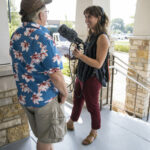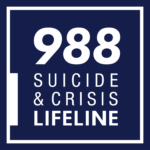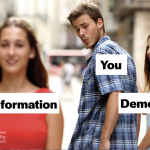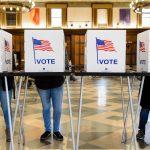
WHY SHOULD I TELL YOU?: A GUIDE TO LESS EXTRACTIVE REPORTING
What vulnerable communities stand to gain, or lose, from sharing their stories with reporters, and what reporters are doing about it. [En espagnol].
Covering misinformation & disinformation on social media
Exploring the fast-paced, facts-optional and sort of sticky-feeling world of the social web can be an overwhelming experience for any reporter.
Covering Mass Shootings
Stop scrambling for ‘why’ and stop calling them ‘shooters.’ By contributor Katherine Reed, professor at the Missouri School of Journalism.

COVERING SUICIDE RESPONSIBLY
More than 50 international studies have found that certain types of media coverage can increase the likelihood of suicide for some individuals.
Covering elections
Avoiding the horserace: a guide for ethical election coverage. By Center fellow Isaac Alter.
Covering hate speech without amplifying it
Journalists must alert society to hateful speech without unduly ampiflying the voices of hate propagandists. By Center fellow Abigail Steinberg.
TIPS FOR BALANCED AND INFORMED CRIME COVERAGE
11 tips for ethical crime reporting. By Center fellow Natalie Yahr.
Using confidential sources
Tips and guidelines journalists should consider when using confidential sources, as well as a few resources that caution against them. By Center fellow Steven Potter.
Drones in the News
White Paper: Newsrooms should develop and communicate drone policies. By Center director Kathleen Bartzen Culver and Megan Duncan.
Drones in the Newsrooms
White Paper: Newsrooms should build trust with audiences in drone journalism. By Center director Kathleen Bartzen Culver and Megan Duncan.
EXTERNAL RESOURCES
- BBC Editorial Guidelines
British Broadcasting System - CAJ Ethical Guidelines
Canadian Association of Journalists - CPB Ethics Guide for Public Radio Journalists
Corporation for Public Broadcasting - MCAE: Improving Public Dialogue: Media and Citizen Responsibilities
Markkula Center for Applied Ethics - NPPA Code of Ethics
National Press Photographers Association - NPR Ethics Handbook
National Public Radio - NYT Standards and Ethics
The New York Times Company - ONA Mission and Values statement
Online News Association - RTDNA Code of Ethics
Radio Television Digital News Association - SPJ Code of Ethics
Society of Professional Journalists







